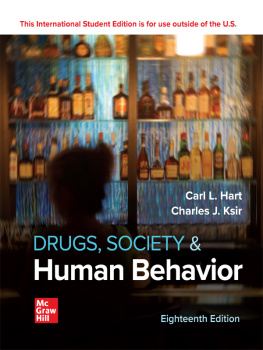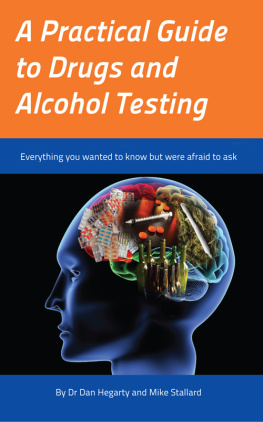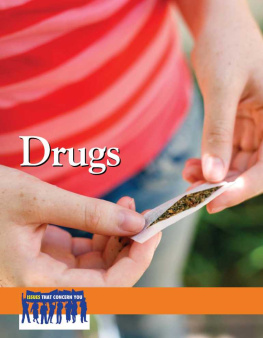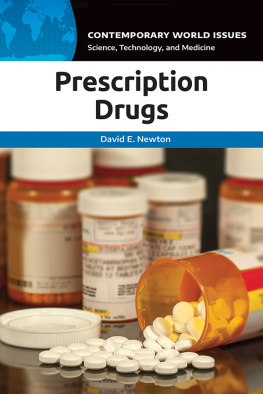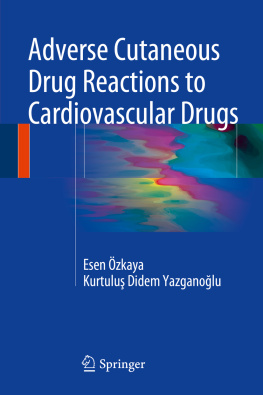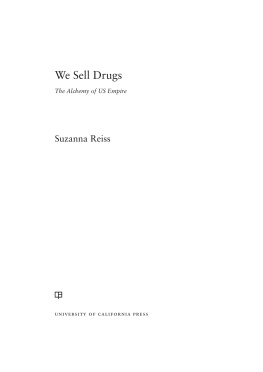PAN-AFRICAN ISSUES IN DRUGS AND DRUG CONTROL
Pan-African Issues in Drugs and Drug Control has effectively brought to the front burner some very critical realities associated with the need for proper examination and understanding of the diverse dimensions of this Discourse. Drug Supply being demand-driven is reiterated. The in-depth analyses on Drug Control policy and practice measures from both Africans at home and in the diaspora and the attendant consequences for the victims, their relations and communities is highly commendable. The authors have successfully threaded together invaluable materials, especially the rich contributions from the seven African countries, which make this compendium a MUST READ.
Ngozi Osarenren, University of Lagos, Nigeria
Pan-African Issues in Drugs and Drug Control
An International Perspective
Edited by
ANITA KALUNTA-CRUMPTON
Texas Southern University, USA
First published 2015 by Ashgate Publishing
Published 2016 by Routledge
2 Park Square, Milton Park, Abingdon, Oxon OX14 4RN
711 Third Avenue, New York, NY 10017, USA
Routledge is an imprint of the Taylor & Francis Group, an informa business
Copyright Anita Kalunta-Crumpton 2015
Anita Kalunta-Crumpton has asserted her right under the Copyright, Designs and Patents Act, 1988, to be identified as the editor of this work.
All rights reserved. No part of this book may be reprinted or reproduced or utilised in any form or by any electronic, mechanical, or other means, now known or hereafter invented, including photocopying and recording, or in any information storage or retrieval system, without permission in writing from the publishers.
Notice:
Product or corporate names may be trademarks or registered trademarks, and are used only for identification and explanation without intent to infringe.
British Library Cataloguing in Publication Data
A catalogue record for this book is available from the British Library.
The Library of Congress has cataloged the printed edition as follows:
Kalunta-Crumpton, Anita, 1962-
Pan-African issues in drugs and drug control : an international perspective / by Anita Kalunta-Crumpton.
pages cm
Includes bibliographical references and index.
ISBN 978-1-4724-2214-9 (hardback) ISBN 978-1-3155-9933-5 (ebook) ISBN 978-1-3170-8433-4 (epub) 1. Drug traffic Africa. 2. Drug control Africa. I. Title.
HV5840.A47K35 2015
362.2916096dc23
2014038689
ISBN: 9781472422149 (hbk)
ISBN: 9781315599335 (ebk-PDF)
ISBN: 9781317084334 (ebk-ePUB)
Contents
Anita Kalunta-Crumpton
Wilson Y.N. Tamfuh
Joseph Appiahene-Gyamfi
Karatu Kiemo
Lawrence Kazembe and Isak Neema
Udo C. Osisiogu and Suleiman Muhammed Bilyaminu
Paulin Mbecke
Jephias Matunhu and Viola Matunhu
Marika Dawkins, Camille Gibson and Dahlia Stoddart
Indira Rampersad
Daniel E. Georges-Abeyie
Jaime Amparo Alves and Dina Alves
Gabriel Ferreyra
Timi Osidipe
Alvise Sbraccia
Clayton Mosher and Scott Akins
Anita Kalunta-Crumpton
List of Figures
List of Tables
Foreword
This book is a welcome addition to the literature and debate on the global problem of drug supply, drug demand and how to deal with it. The book features discussions across 16 countries, in four continents on how a global problem takes on its unique local impact. Yet despite the grounding of the local and country debates, the theme of how the illegal and sometimes legal harmful (mis)use of drugs has a wider impact for the pan-African Diaspora in particular is part of the point of this book.
The chapters all raise some common themes. Legislation, border control and criminalization have all failed to dampen the lucrative market that thrives in the illicit global economy. While many countries have tried to manage drugs supply, demand continues to be fueled by the wealth and desire of upper and middle class drug users and the collateral damage of its use among the poor and disadvantaged of its supply chain. Minimizing the harm of so-called tax free economy and the lack of quality control of the distributed substances has led to very costly and ineffective programs. The worlds governance has not got it right yet and there is evidence in this book that it has not made the governance of drugs illegal economy and medical damage any better for people. Corruption, violence and high profit reign supreme in this market.
The editor has a vision to create a more informed global dialogue, where the players can see more clearly the pawns in the game. To this aim I think this book succeeds. There is much detail about legislation in many countries. There is an overwhelming sense that this legislation has had little impact in stemming the tide of a lucrative illegal trade. There is therefore far less known about the supply chain for such a massive industry that transports its goods across the world with minimal disruption, and how cross-border communications and the virtual world facilitate this. The additional and important undercurrent that the editor raises through this collection is what has been the particular impact on the pan-African Diaspora. This is an important question, one that needs to be addressed alongside our continuous struggle to find a more humane and less harmful approach to managing the personal damage drugs (mis)use causes to the stability of countries, the health and wellbeing of its citizens, and the hope of our children.
Professor Betsy Stanko OBE
Emeritus Professor of Criminology, Royal Holloway University of London
Acknowledgments
Pan-African Issues in Drugs and Drug Control: An International Perspective is further demonstration of my goal to bring the situation of people of African descent in crime, policy and justice concerns to the heart of international criminological inquiry. It is never an easy task to put together a volume of this kind. For the opportunity to continue on this mission, I am grateful to Ashgate Publishing. Covering 16 countries in Africa, the Americas and Europe respectively, the book is the product of contributions from 23 authors whose respective narratives of the drug situation vis--vis the black population in individual countries provide a wealth of information to animate debate among researchers, policymakers and practitioners, nationally and internationally. To the 23 authors, I thank sincerely for their individual endeavors and dedication to the book project, including the associated editorial queries. I express my gratitude to Professor Betsy Stanko OBE whose succinct and powerful statement in the Foreword is a reminder of the threats and challenges posed by drug use/abuse and drug trafficking as well as the ongoing legislative, policy and practice control of licit and illicit drugs across individual countries and the international community in general.
For their unwavering support and interest in my research and scholarship, I give my special and heartfelt thanks to my children, Ezinwa and Nkemjika, and to David.



